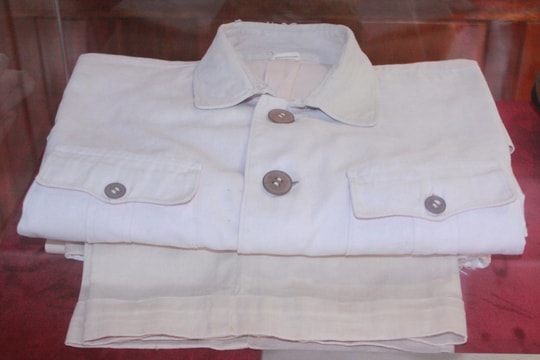Nguyen Tat Thanh studied Vietnamese at Vinh French-Vietnamese Primary School.
To fight the French, one must learn French. Realizing early the necessity of learning the national language, the Vice-Chancellor boldly sent both sons to Vinh town to study in the preparatory class of the French-Native Primary School. It was from this class that Tat Thanh began to be exposed to the words Freedom - Equality - Fraternity. Along with that, the cradle of his homeland, rich in indomitable traditions, created in Nguyen Tat Thanh early patriotism, hatred of the enemy, and the will to "be a man worthy of being a man".
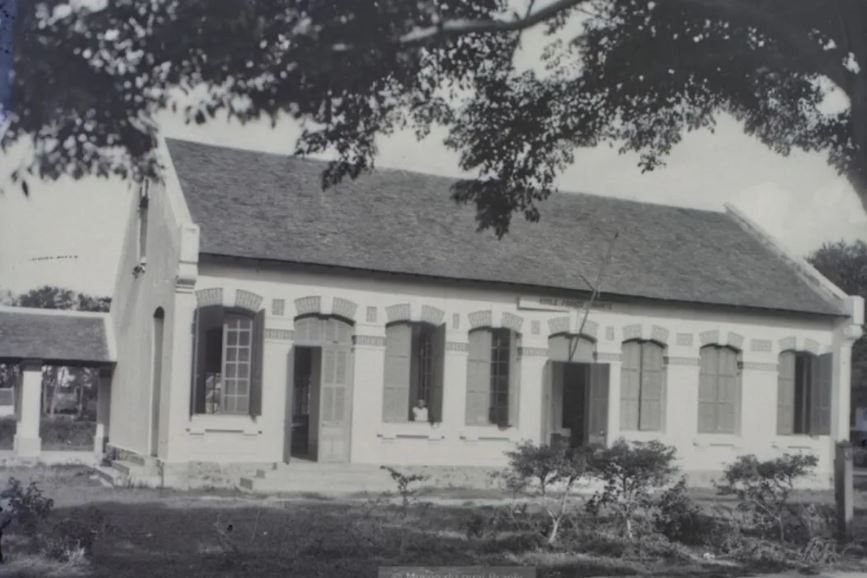
Since the French colonialists occupied the 6 provinces of Cochinchina (1867), Confucianism in our country had really declined. Inaugurated as Governor-General of Indochina in 1897, by 1905, throughout the country, Paul Doumer signed an order to establish a series of primary schools called French-Native Schools, located in cities and large provinces to teach French along with the national language and Chinese characters. In 1905, the Indochina Education Department was established and the Education Reform Council was born. The Governor-General of Indochina issued a decree allowing the Central provinces to open French-Vietnamese Schools. Those schools gradually attracted young people, competing for Confucian students from the teachers in the countryside. The Confucian teachers had to lament:
What is the Chinese character?
The mandarin and the mandarin must lie down.co
Chinese characters were certainly outdated. But most Confucian scholars hated the national language and French, considering them the languages of the French invaders. In Nam Dan at that time, the number of people following modern learning was still very small. Among the scholars who knew and interacted with his family, Tất Thành only saw a few people who advocated learning French. They believed that only by understanding the enemy could one defeat the enemy, “knowing the enemy and knowing yourself, you can fight a hundred battles with no danger of defeat.”
During the Early Le Dynasty, if Nguyen Trai was not good at Chinese characters, how could he have responded to Phuong Chinh, Vuong Thong... in Nghe An and Dong Quan? So nowadays, if one wants to fight the French, one must learn French. However, Phan Boi Chau did not like the national language and French. His poems and writings were written in Nom and Chinese characters, but not in any national language. At that time, which language to learn was a hotly debated issue, no less than which country to rely on to fight the French.
Originally hating the “on the branches and on the leaves” way of learning, Mr. Pho Bang Sac saw the necessity and timeliness of learning the national language. After considering the pros and cons, he boldly sent both sons to Vinh town to study in the preparatory class of the French-Native Primary School. Kim Lien village had Chu Van Phi(aka Nay), studied in the same class with Nguyen Tat Dat and Nguyen Tat Thanh. Among the teachers of the school was teacher Le Huy Mien, who taught drawing and was also one of the school's administrators.
Teacher Le Huy Mien (aka Le Van Mien) was born in 1873 in Kim Khe village, Kim Nguyen commune (now Nghi Long commune), Nghi Loc district, Nghe An province, in a Confucian family. Knowing that he was intelligent and a good student, King Dong Khanh sent him, Hoang Trong Phu and Than Trong Hue to France to study at a colonial school (1888). After finishing his studies, his friends returned home to become mandarins, while he transferred to the Paris School of Fine Arts from 1891 to 1895 to learn more about the culture and civilization of the French Republic. From then on, he had an anti-French colonial ideology. When he returned home (1895), he refused to become a mandarin, went to Hanoi to work for a printing house for a while, then returned to Vinh to open a school...
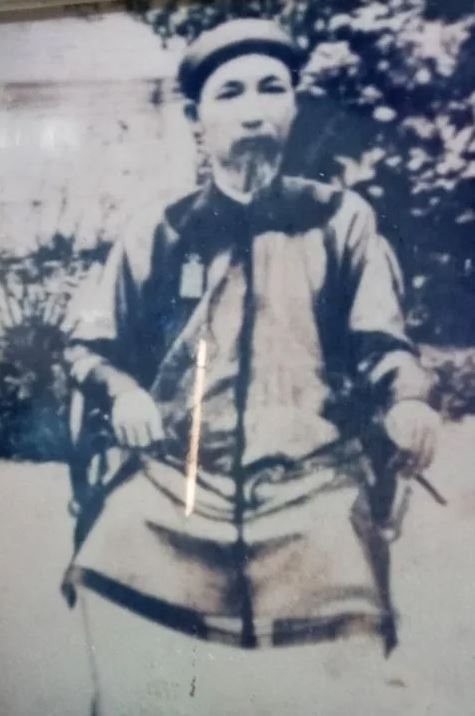
His life had many more ups and downs, and Tat Thanh met him again at the National School later. Perhaps, the very vivid caricatures of Nguyen Ai Quoc in the newspaperLe Paria(The Miserable) originated from studying painting with a famous artist named Le Huy Mien? It is also very possible, but if so, that is not as important as the teacher's absorption of patriotic thoughts and anti-colonial consciousness.
Coming to the new school, there were many new things. His hands were used to holding a brush to write Chinese characters, but this was the first time he wrote with a steel pen. Tất Thành felt very shy, but gradually he got used to it. Learning the national language really helped him learn to read and write quickly, unlike Chinese characters, which he learned one word at a time and could not combine the words. The school still had classes to teach Chinese characters. Tất Thành and his brothers had an advantage in this subject. When learning French vocabulary, Tất Thành often wrote down Chinese characters next to them to make it easier to remember the meaning of the words.
It was from this class that Tat Thanh began to come into contact with words.Liberty - Equality - Fraternityhanging on the classroom wall. He began to ponder the meaning of those fascinating words. Later, he had the opportunity to recall that memory to a Soviet journalist: “When I was about thirteen years old, I first heard three French words: Liberty, Equality, Fraternity... I really wanted to get acquainted with French civilization, wanted to find out what was hidden there.behind those words".
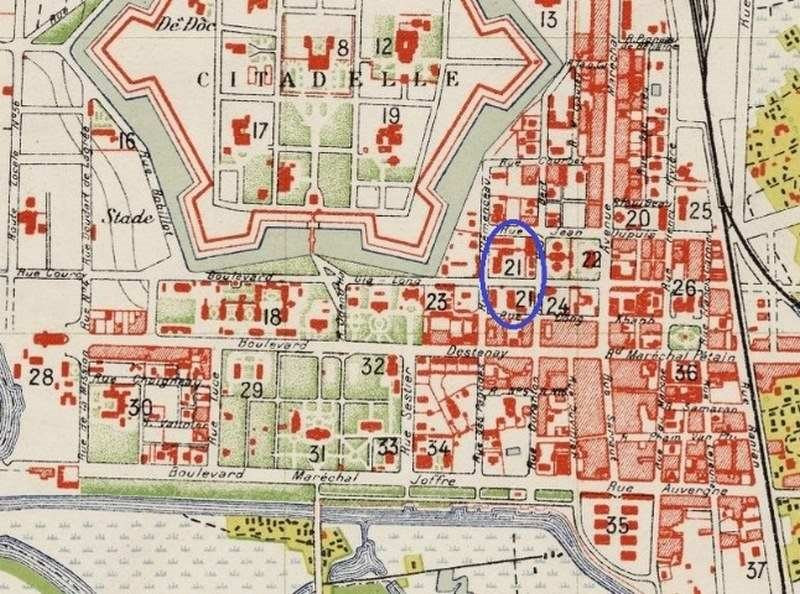
Vinh town - the capital of Nghe An province, was much more bustling than in previous years. 1905 was the eighth year of the first French colonial exploitation program in Indochina. At the same time as the construction of traffic routes from Vietnam to Laos, on March 27, 1905, the railway line from Hanoi to Vinh was inaugurated with a train continuing to the South from Ham Rong station. The streets in Vinh were expanded. The Truong Thi train repair factory was under construction; French and Chinese shops sold many types of imported goods. The headquarters of the branches of the Indochina Forestry and Matchmaking Association, the French Asia Company, the Northern and Northern Central Vietnam Company, and the Lao Company were built in Vinh - Ben Thuy.
Due to the rapidly increasing demand for import and export, Ben Thuy river port was dredged. Many foreign merchant ships docked. Resources such as forest products and seafood that French capitalists captured were all transferred through Ben Thuy port to foreign countries. Conversely, foreign goods were also imported through Ben Thuy. This port (along with Da Nang port) became the import and export center of the entire Central Indochina region.
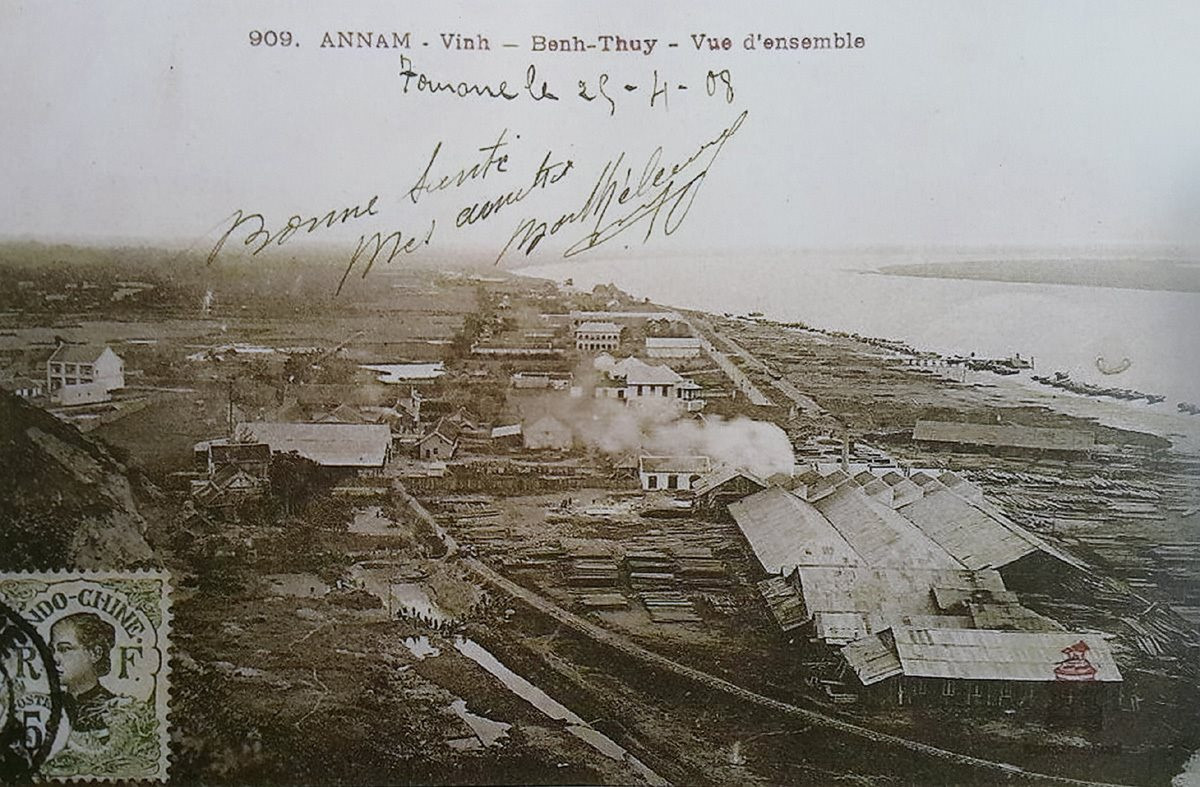
On December 20, 1902, the Governor General of Indochina issued a decree giving the Tonkin and North Central Company the monopoly on the trade of alcohol, salt, tobacco, and opium from Ha Tinh up. They forced the people of each village to consume all the alcohol they allocated per capita.
Central Vietnam was a “protectorate” country, so Nghe An, Ha Tinh and other provinces in the country, besides the French colonial administration with dozens of specialized agencies to assist, also had a feudal government apparatus with antiquated institutions and laws, maintained by the colonialists to serve their policy of oppression and exploitation. Our people were in a double bind, oppressed by both the French colonialists and the feudalists.
In front of Vinh City Gate, where the provincial government works, is the high-rise residence of the French Consulate. To the west is the towering Cau Ram Catholic Church. In Vinh, there is a system of convents, primary schools, and major seminaries, including hundreds of French and Vietnamese priests.
With the first colonial exploitation program of the French colonialists, Vinh town is transforming itself to become the economic and political center of Nghe An, the industrial and commercial center of the northern provinces of Central Vietnam and the central region of Laos.
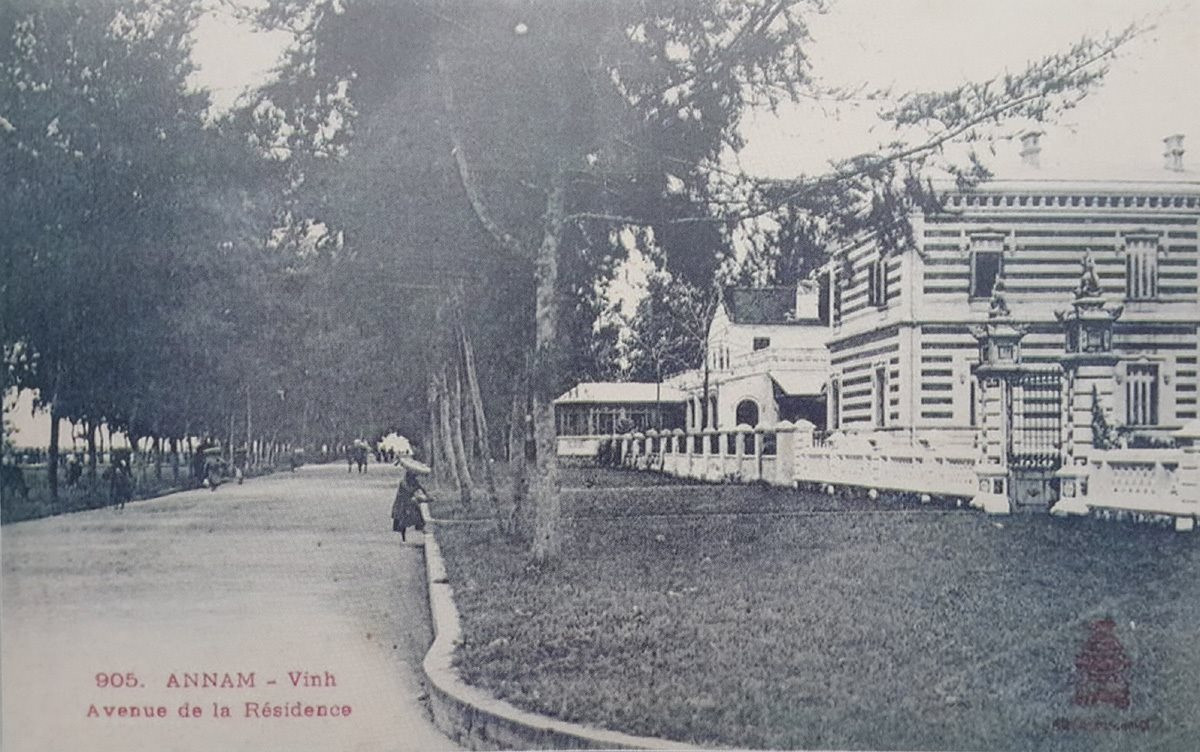
The cradle of his homeland, rich in indomitable traditions and unique characteristics of Nghe An, created in Nguyen Tat Thanh early patriotism, love for the people, hatred for the enemy and the will to "be a man worthy of being a man". The examples of the modern teachers and the enthusiastic patriotic activities of his fathers such as Phan Boi Chau, Dang Thai Than... highly stimulated his spirit. The attitude of non-cooperation, secret opposition to colonialism and feudalism, and the modernity, love for the people and patriotism of his father had a profound influence on the formation of his personality.
Following his father's footsteps through many places and coming into contact with many progressive scholars, his soul and feelings became more attached to the working people, his vision was broadened and he gained new awareness.
The scene of hunger and misery of the poor contrasted with the luxurious and elegant life of mandarins, landlords, merchants, and colonialists; the scene of devastation and death in the terrorized areas, along with the rapid changes in Vinh town helped him draw the first useful conclusions about society./.

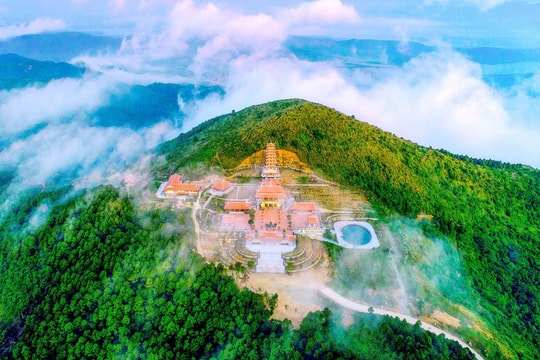
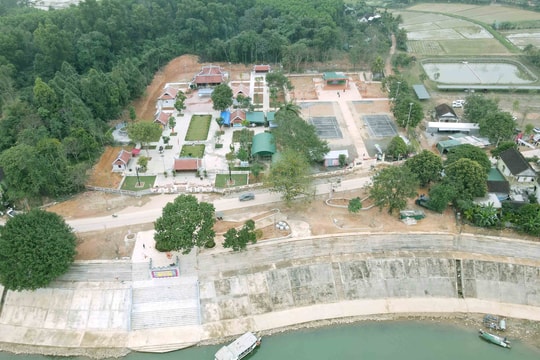
.jpg)
.jpg)
